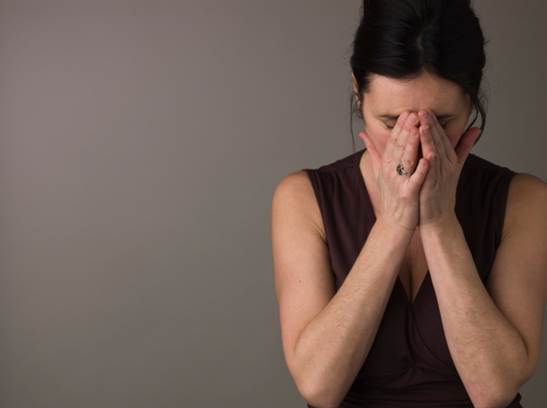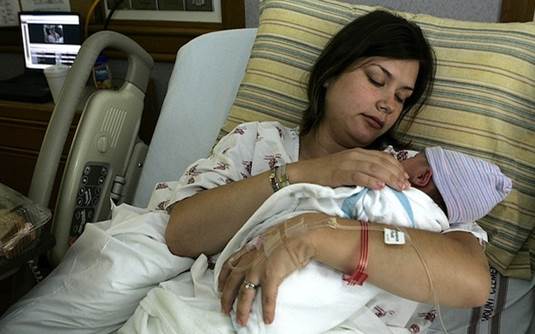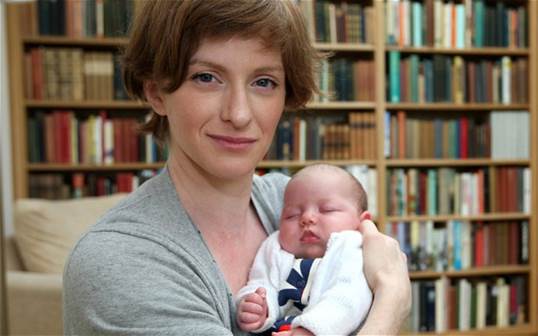Many women report symptoms of
post-traumatic stress after giving birth.
It's something soldiers often suffer after
being in combat situations: frightening flashbacks and panic attacks due to
post- traumatic stress disorder (PTSD). So when Meeka Centimano experienced
similar symptoms after a pretty ordinary birth experience-an 11-hour labor in
the hospital before delivering a healthy baby girl vaginally-she didn't
understand why.

Many
women report symptoms of post-traumatic stress after giving birth
The medical events that can lead to this
kind of trauma aren't cut and dried, says Centimano, L.S.C.SW., now a therapist
specializing in pregnancy and postpartum mood disorders in Prairie Village,
Kan. whereas many women don't feel traumatized by childbirth, other women might
have serious PTSD symptoms after-ward that can linger for years. "The
issue isn't always the physical birth experience itself, but rather whether a
woman feels heard when she's scared or in pain, and that people were
communicating with her during the birth," Centimano says.
Research suggests that up to 8 percent of
women experience PTSD following labor and 20 percent to 33 percent of moms have
some PTSD symptoms. (A doctor can make an official PTSD diagnosis.) Symptoms of
the disorder include intrusive re- experiencing of the birth or flashbacks,
anxiety and panic attacks, persistent irritability, feeling a sense of
unreality or detachment and avoidance of stimuli associated with the birth
(including thoughts, feelings, people and places). PTSD isn't as
well-recognized as other postpartum disorders, says Susan Ayers, Ph.D.,
professor of maternal and child health at City University London. While any
mental health problem in new mothers is serious, PTSD has additional
consequences because it can include avoiding anything that reminds women of the
birth. "This means women might avoid postpartum checkups or contact with
their babies," says Ayers.

While
any mental health problem in new mothers is serious, PTSD has additional
consequences because it can include avoiding anything that reminds women of the
birth
If you've experienced previous trauma
(particularly sexual abuse), are very frightened of childbirth and/or are
anxious during pregnancy, you're at higher risk of PTSD, Ayers says.
Additionally, poor pain relief, medical interventions, such as an emergency
Cesarean section, and a baby's stay in the NICU can raise your risk.
Fortunately, there are ways to decrease
your chances of being traumatized by your birth experience:
1.
Talk to your OS or midwife ahead of time
Write a list of your concerns related to
childbirth and bring it to your next appointment.
2.
Educate yourself
In a recent study of 89 women published in
the Israel Medical Association Journal, those who consulted fewer sources about
childbirth such as classes, books and magazines were more likely to have PTSD
symptoms.

Those
who consulted fewer sources about childbirth such as classes, books and
magazines were more likely to have PTSD symptoms
3.
Gather a support team
The level of support during birth affects a
woman's mood, anxiety and perceived control more than stressful interventions,
according to a study published in the Journal of Anriety Disorders.
4.
Speak up
If you're in pain, scared or confused, tell
your care provider. If you experience symptoms of PTSD after having your baby,
see a mental-health specialist. Visit Birth Trauma Association (birthtrauma
association.org.uk) or Postpartum Support International (postpartum .net) for
more information.